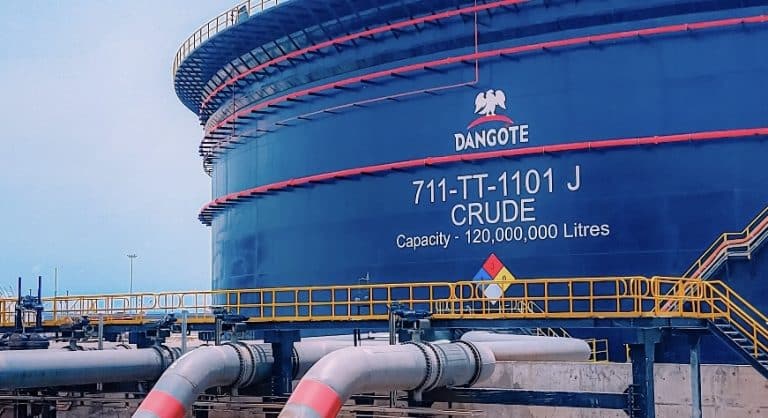
In a fresh move to reflect global market trends, Dangote Petroleum Refinery has once again reduced the pump price of Premium Motor Spirit (PMS), widely known as petrol.
The new price stands at ₦835 per litre, representing a 3.5% decrease from the previous ₦865 per litre.
This latest price adjustment comes on the heels of a noticeable decline in global crude oil prices, which have recently dipped to around $64 per barrel, down from more than $70 just weeks ago. The refinery had earlier brought down the price of petrol from ₦880 to ₦865 per litre. However, that previous reduction did not translate to relief for consumers, as oil marketers failed to pass on the benefit at the pump.
With a production capacity of 650,000 barrels per day, the Dangote Refinery remains a cornerstone of Nigeria’s energy sector, holding the potential to significantly reduce the nation’s reliance on imported fuel.
However, uncertainty now clouds the future of the Naira-for-Crude oil policy. The agreement between the Nigerian National Petroleum Company Limited (NNPCL) and Dangote Refinery, which allowed the exchange of crude oil for refined products settled in Naira, expired on March 31, 2025. As of now, the deal has not been renewed, leading to a suspension of the refinery’s domestic sales of refined products in Naira.
Despite this, the refinery has not halted operations. Reports suggest that Dangote Refinery has processed around 400,000 barrels of crude oil per day since the beginning of 2025. Interestingly, about 35% of this crude supply has been sourced from foreign markets, including Brazil and Equatorial Guinea, as local crude availability remains inconsistent.
Stakeholders involved in the Naira-for-Crude agreement are expected to reconvene in the coming weeks to determine the future direction of the policy, which has significant implications for Nigeria’s fuel pricing, foreign exchange reserves, and energy independence.





